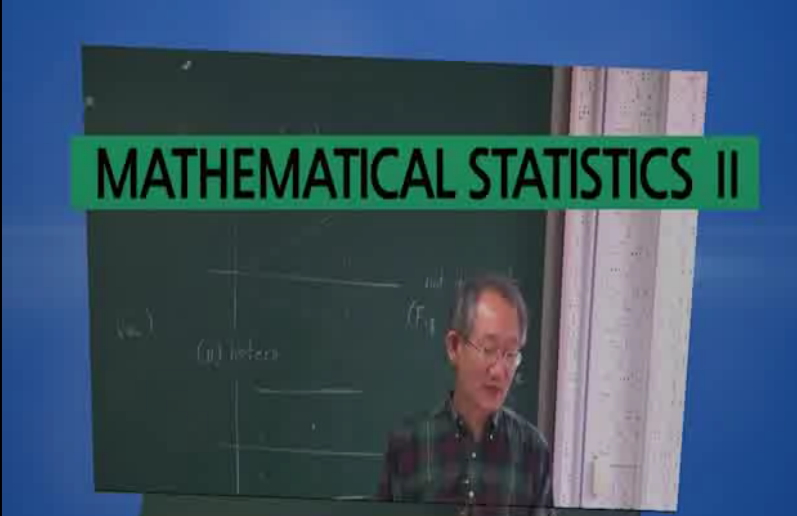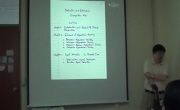어떤 경험적 현상을 설명하거나 예측하기 위해 제안된 과학적 가설은 그 자체로 곧 신뢰할 수 있는 것은 아니다. 그것은 관련된 별도의 증거들에 의해 주의 깊게 그 신뢰성이 평가될 필요가 ...
http://chineseinput.net/에서 pinyin(병음)방식으로 중국어를 변환할 수 있습니다.
변환된 중국어를 복사하여 사용하시면 됩니다.
- 中文 을 입력하시려면 zhongwen을 입력하시고 space를누르시면됩니다.
- 北京 을 입력하시려면 beijing을 입력하시고 space를 누르시면 됩니다.
우도와 베이즈 인수
한글로보기https://www.riss.kr/link?id=G3787359
- 저자
-
발행기관
-
-
발행연도
2017년
-
작성언어
Korean
- 주제어
-
자료형태
한국연구재단(NRF)
-
0
상세조회 -
0
다운로드
부가정보
국문 초록 (Abstract)
경험적 증거에 의해 선호할 만한 가설을 결정하는 데 있어 ‘우도’의 중요성은 잘 알려져 있다. 해당 가설하에서 확률적으로 문제의 증거가 나타날 만한 정도를 보여 주는 측도 내지 함수이다. 이는 곧 어떤 가설이 갖는 경험적 의미를 보여 주는 한 가지 방식이다. 하지만 불확실한 증거에 의한 신념도의 갱신에 적합한 것으로 알려진 이른바 ‘제프리 조건화’는 그러한 우도를 변화시키며, 따라서 우도의 객관성에 심각한 훼손을 초래하는 것으로 여겨지고 있다.
이와 같은 문제를 해결하는 한 가지 방안으로 이른바 ‘베이즈 인수’를 활용한 방식이 제안된 바 있다. 즉 불확실한 증거의 불확실한 정도를 나타내는 베이즈 인수를 이용해 우도를 임의로 고정시키고, 그로써 제프리 조건화 방식을 적용하는 방식이다. 하지만 나는 본 연구에서 그 방안이 해당 문제를 해결하는 적절한 방법이 될 수 없음을 논증하였다. 그리고 그 문제를 좀더 적절히 해결할 수 있는 다른 한 가지 방안을 제시하였다. 즉 ‘우도’를 빈도주의적 관점에 따라 객관적인 불변의 것으로 보고, 오히려 그에 따라 부적절한 증거로 여겨지는 것들을 배제하고 새로운 증거를 얻어 가는 방식이다.
어떤 경험적 현상을 설명하거나 예측하기 위해 제안된 과학적 가설은 그 자체로 곧 신뢰할 수 있는 것은 아니다. 그것은 관련된 별도의 증거들에 의해 주의 깊게 그 신뢰성이 평가될 필요가 있다. 그런데 이때 동일한 증거에 대해 경쟁하는 서로 다른 가설들이 제시될 수 있다. 이 경우라면, 그러한 여러 가설들 가운데 우리가 어느 것을 선호할 수 있는가에 관한 받아들일 만한 기준이 필요하다.
경험적 증거에 의해 선호할 만한 가설을 결정하는 데 있어 ‘우도’의 중요성은 잘 알려져 있다. 해당 가설하에서 확률적으로 문제의 증거가 나타날 만한 정도를 보여 주는 측도 내지 함수이다. 이는 곧 어떤 가설이 갖는 경험적 의미를 보여 주는 한 가지 방식이다. 하지만 불확실한 증거에 의한 신념도의 갱신에 적합한 것으로 알려진 이른바 ‘제프리 조건화’는 그러한 우도를 변화시키며, 따라서 우도의 객관성에 심각한 훼손을 초래하는 것으로 여겨지고 있다.
이와 같은 문제를 해결하는 한 가지 방안으로 이른바 ‘베이즈 인수’를 활용한 방식이 제안된 바 있다. 즉 불확실한 증거의 불확실한 정도를 나타내는 베이즈 인수를 이용해 우도를 임의로 고정시키고, 그로써 제프리 조건화 방식을 적용하는 방식이다. 하지만 나는 본 연구에서 그 방안이 해당 문제를 해결하는 적절한 방법이 될 수 없음을 논증하였다. 그리고 그 문제를 좀더 적절히 해결할 수 있는 다른 한 가지 방안을 제시하였다. 즉 ‘우도’를 빈도주의적 관점에 따라 객관적인 불변의 것으로 보고, 오히려 그에 따라 부적절한 증거로 여겨지는 것들을 배제하고 새로운 증거를 얻어 가는 방식이다.
다국어 초록 (Multilingual Abstract)
For those cases, it is well known what an important role the concept of likelihood plays in selecting the favorable hypotheses by empirical evidence. Likelihood is, roughly speaking, a measure or a function which shows how probable the evidence in question is generated when a hypothesis under consideration is given. It is usually thought to be a way that says some empirical import of the hypothesis. But it is also known that the so-called "Jeffrey Conditionalization" regarded as a suitable update rule of degrees of belief by uncertain evidence may change such likelihood of a hypothesis and so has a seriously bad effect on the objectivity of likelihood.
Fortunately, a way of solving the problem has been proposed using what we call the "Bayes factors": at first, keep the likelihood of a hypothesis in question constant simply for convenience on the basis of some Bayes fact
Scientific hypotheses are usually proposed to explain or to predict some empirical phenomena. But they are not naturally thought to be reliable by themselves. It is necessary for them to be assessed carefully by other independent but relevant evidence...
Scientific hypotheses are usually proposed to explain or to predict some empirical phenomena. But they are not naturally thought to be reliable by themselves. It is necessary for them to be assessed carefully by other independent but relevant evidence on their reliabilities. At that time, one to be noted is that there are cases in which some competing hypotheses are simultaneously proposed for the same evidence.
For those cases, it is well known what an important role the concept of likelihood plays in selecting the favorable hypotheses by empirical evidence. Likelihood is, roughly speaking, a measure or a function which shows how probable the evidence in question is generated when a hypothesis under consideration is given. It is usually thought to be a way that says some empirical import of the hypothesis. But it is also known that the so-called "Jeffrey Conditionalization" regarded as a suitable update rule of degrees of belief by uncertain evidence may change such likelihood of a hypothesis and so has a seriously bad effect on the objectivity of likelihood.
Fortunately, a way of solving the problem has been proposed using what we call the "Bayes factors": at first, keep the likelihood of a hypothesis in question constant simply for convenience on the basis of some Bayes fact











